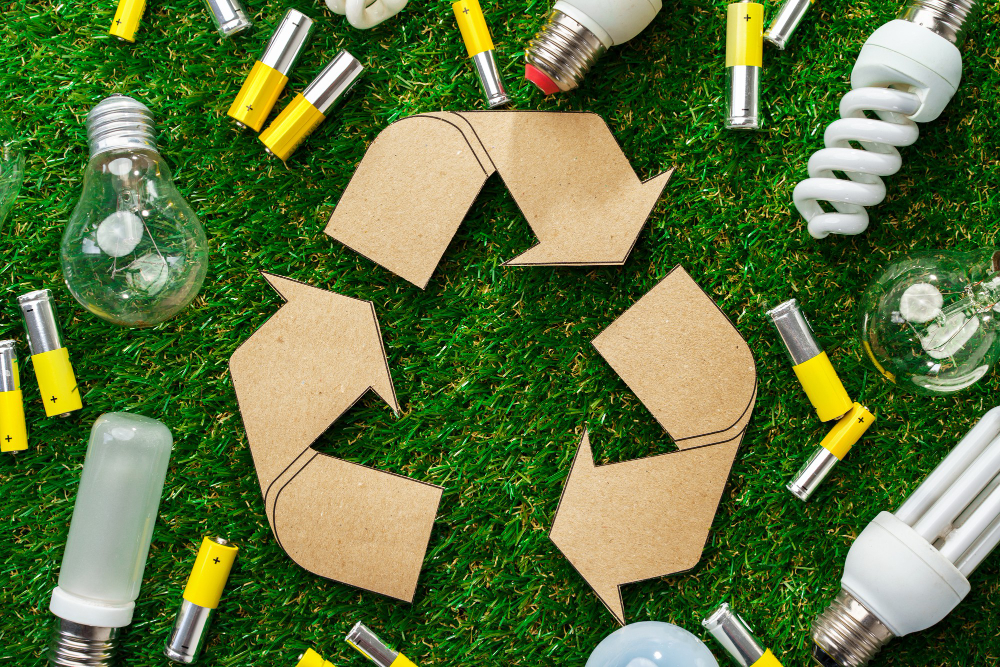
Have you ever wondered why recycling is so important? Or how it contributes to saving energy? Across New Jersey, recycling is not just a buzzword; it’s a crucial practice that conserves resources, reduces waste, and cuts energy use. Whether you’re a business owner or a resident, understanding the energy-saving benefits of recycling can inspire you to take bigger steps toward a greener future.
This blog dives into the ways recycling saves energy, highlights key examples, and offers tips for maximizing your recycling habits. Plus, if you're based in New Jersey, there’s a recycling solution designed specifically for you. Keep reading to find out how you can make an impact.
Recycling is more than simply tossing cans and paper into a separate bin. It plays a pivotal role in conserving energy across industries. Here’s why:
By recycling, you decrease the demand for energy-intensive raw materials and reduce overall energy consumption, making it a small yet mighty habit with a significant environmental payoff.
To better illustrate this point, let's explore real-world examples that show how recycling dramatically reduces energy use:
Aluminum is one of the most energy-intensive materials to produce from scratch. Yet, it is also incredibly recyclable. According to the Environmental Protection Agency (EPA), producing new aluminum from recycled aluminum cans uses 95% less energy compared to creating it from raw materials.
Recycled glass doesn't lose quality or purity, making it a great candidate for reuse. Recycling glass saves about 30% of the energy needed to create new products from raw sand, soda ash, and limestone.
Recycling paper reduces energy consumption by 40% compared to using raw wood pulp. By keeping paper out of landfills, we also cut down on methane emissions generated by decomposing organic matter.
Though not as energy-efficient as aluminum or glass recycling, reusing plastics still results in substantial energy savings, particularly when they are turned into new plastic goods.
These examples underscore why individual and communal recycling efforts matter. Every can, bottle, or sheet of paper you recycle significantly reduces energy demand.
New Jersey may be small geographically, but it has a big recycling mission. Given its high population density and industrial activity, recycling is crucial for energy conservation and waste management in the state. Here’s why:
Leading the Way in Sustainability: New Jersey has long been at the forefront of sustainability efforts. Participating in recycling programs fosters a culture of eco-consciousness that sets an example for other states.
Here are some actionable tips to help you maximize your recycling efforts and further contribute to energy savings:
By implementing these practices, you’ll not only save energy but also take an active part in New Jersey’s vibrant recycling ecosystem.
If you're looking for ways to elevate your recycling efforts, consider working with All County Recycling, a leading recycling center in New Jersey. Whether you’re a business, a school, or a resident, All County Recycling offers:
Recycling doesn’t have to be complicated. Get in touch with All County Recycling today for a free consultation designed to make eco-friendly living or operations easy and efficient.
The simple act of recycling has profound implications for energy conservation, from reducing industrial manufacturing energy use to cutting greenhouse gas emissions. New Jersey residents and businesses alike have a pivotal role to play in shaping a more sustainable future.
By recycling, you’re not just handling waste; you’re conserving energy, protecting resources, and contributing to a cleaner, greener world. Want to make even more of an impact? Partner with All County Recycling to take your recycling commitment to the next level.
Your efforts matter. Start today, and help New Jersey set the standard for recycling and energy conservation.